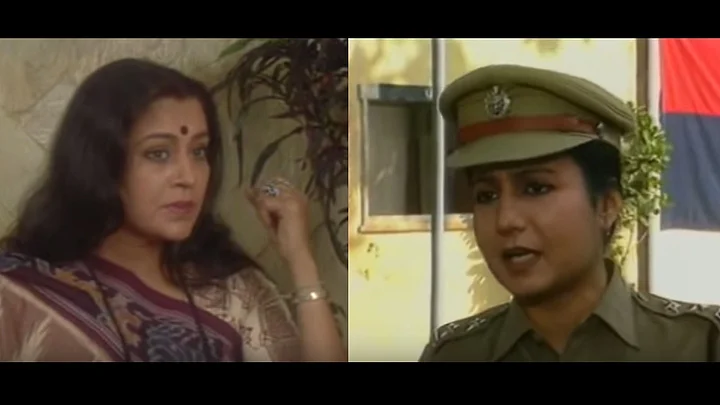The 1980s was largely a low as far as mainstream Bollywood is concerned, but even though we only had good old Doordarshan on our telly, it dished out some pretty thought-provoking and eminently watchable shows, compared to the regressive soaps, churned out on a daily basis today.
Here are 5 DD shows from the 80s that our current TV channels and producers should revisit and learn from:
1. Pachpan Khambe Laal Deewarein
Based on a novel by Usha Priyamvada, the title alludes to the 55 pillars and red walled building of Lady Sri Ram College in Delhi. Sushma, played winningly by Meeta Vashisht, teaches in a college. She is single, lives independently and is the sole bread winner of her family. She falls in love with a much younger man, Neel, played by Aman Verma. Sushma eventually has to make the sad and tough choice of breaking off with her lover, because of her family situation, but she remains graceful and certain of her choice. She never seen as helpless and pathetic.
Compare it to similar recent shows like Jyoti, where the girl plays the stereotypical self-sacrificing woman, and Hitler Didi, where the girl has to become the ‘man’ of the house and hence be irrationally harsh and cold. Both pander to the patriarchal view of the single women, propped by relentlessly evil families which renders the informed choice of the female protagonist moot!
2. Rajani
Directed by filmmaker Basu Chatterjee, this show revolved around a simple homemaker Rajani, played by Priya Tendulkar, who took on usual middle class problems such as insensitive government officials, unscrupulous astrologers and so on. Her being a woman or a homemaker didn’t make her voiceless. She remained a proud homemaker who did not offer brainless obedience or passive acceptance of any situation. Rajani was well informed, took matters in her own hands and won battles for herself and others.
In today’s times, the only challenge before Rajani would be to keep her marriage intact. The kitchen politics would keep her occupied, leaving her with no time, energy or even interest to be involved in the world outside her chaar-diwaari (four walls of her sasuraal).
3. Udaan
Directed by Kavita Chaudhary who also played the main protagonist Kalyani, Udaan, inspired many girls and young women to dream BIG. Even though her grandparents are upset at her for being born a girl, her own father raises her with the belief that she is no less than anyone. This conviction fuels her dream to become the first lady IPS officer. Though the popular assumption is that Udaan was inspired by Kiran Bedi’s story, Kavita Chaudhary maintains that it was actually the story of her own sister Kanchan Chaudhary, who was the first woman in India to become a Director General of Police.
The immensely popular Star Plus show Diya aur Baati Hum also shows a similar journey of Sandhya to be an IPS officer. Most of the plot points are regressive, which basically remind us that Sandhya is first a bahu and a wife and then perhaps an individual in her own right.
4. Mirza Ghalib
Directed by Gulzar, Mirza Ghalib was played brilliantly by Naseeruddin Shah and is still fondly remembered for its performances, dialogues and soul stirring compositions by Jagjit Singh. Gulzar’s inimitable writing also made it relevant to the times. I remember a brilliant scene where the gracious acceptance of a barfi on a Diwali night by Mirza Ghalib, is questioned by a Muslim friend. Mirza Ghalib half amused and half irritated counters the question by asking one of his own, “Barfi Hindu hai? Aur jalebi? Khatri hogi? ” This tiny snippet of a scene captured the co-existence of fanatics and of those who lived by the Ganga Jamuni tehzeeb.
5. Hum Log
This immensely popular and loved serial told the story of the lower middle class as they were. The alchoholic father, the harassed mother, the colourful daadi, the straight forward dada and five children with realistic dreams and ambitions. They made mistakes, shared their grief, were affected by greed, deceit and everything else that normal people experience in a lifetime.
I recall a particular scene, in which the fever ridden and delirious mother played by Jayshree Arora, sick of her life, remembers a carefree time in college before her marriage, when she was an ace badminton player. A simple scene which shows that she had and has a life other than this marriage. A sharp contrast to today’s shows where the female lead is only obsessed with having the best karvachauth ever!
(At The Quint, we question everything. Play an active role in shaping our journalism by becoming a member today.)
